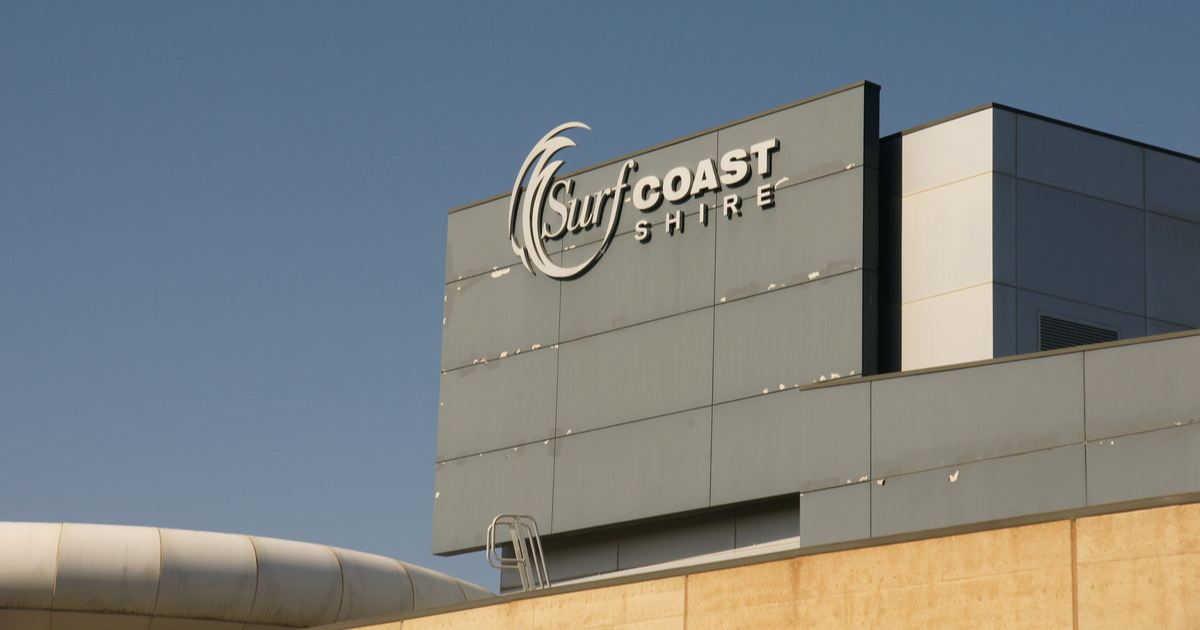Trial to improve river’s health getting closer

The trial, known as berm grooming, will see a reduction in the natural bank of sand that builds up between an estuary and the ocean and blocks the flow of water. Photo: SUPPLIED
A TRIAL aimed at improving the health of the Anglesea River is edging closer, but it remains unclear when the works will be carried out.
Corangamite Catchment Management Authority (CMA) plan to experiment with lowering the sand bar in the river to allow ocean water to flow into the estuary during high tides, also known as berm grooming.
A berm is a natural bank of sand that builds up between an estuary and the ocean, blocking the flow of water, while grooming refers to the process of mechanically removing the sand to the level necessary to enable water flow.
The Anglesea River has long struggled through periods of acidity (which occurs when its pH level is reduced), affecting both the health of its ecosystem, resulting in fish death events and the degradation of habitat, and restricting the recreational use of the waterway.
Corangamite CMA initially considered moving forward with the berm grooming trial earlier this year in summer or autumn – although no specific timeline was committed to – in the hopes it would help to prevent decline in the river estuary’s health and maintain water levels in the upper reaches of the catchment, around Coogoorah Park, preventing the activation of acid sulphate.
A 2023 investigation by CDM Smith exploring options to address the ongoing issues experienced by the Anglesea River, identified acid sulphate soils, which are naturally present in a wide range of coastal and inland settings, as the key source of acidity in the waterway.
These soils form acid when oxidised by air exposure, meaning low water levels within the Anglesea River may activate these materials, sparking a major acidification event.
The investigation put forward several options to improve the river’s health, with the Anglesea River advisory group, supported by Corangamite CMA, the Department of Energy, Environment and Climate Action, Barwon Water and the Surf Coast Shire, electing to first pursue the berm grooming trial.
The report notes that the Anglesea River is a “complex dynamic system” and there is no single or quick fix to the issues it faces, suggesting the management of acid sulphate soils in coastal environments is “a challenge in Australia and around the world”.
The other options presented in the report, many of which have significant financial costs and amenity impacts, are still under consideration.
Corangamite CMA has now received approval under the Marine and Coastal Act to undertake the berm grooming trial and has applied for both a cultural heritage permit with the Wadawurrung Traditional Owners Aboriginal Corporation and a planning permit with the shire, with signs advising the community of the permit application installed at the river mouth on July 19.
Pending approval, the works could happen at any time within the next two years when the necessary water levels and tide conditions present themselves.
Corangamite CMA has confirmed the works to reduce the height of the sand for a section of the berm will require an excavator and last only a few days, with busy periods to be avoided.
The sand removed during the grooming process will be used by the Great Ocean Road Coast and Parks Authority at Point Roadknight for the purpose of renourishment, helping to combat erosion.
This article has been updated. An earlier version incorrectly reported the planned berm grooming trial aimed to improve the river’s health. However, the trail aims to prevent a decline in the river estuary’s health by maintaining water levels in Coogoorah Park. An earlier version also stated that the trial was intended to begin in March or April, but no specific timeline has been committed to.

















